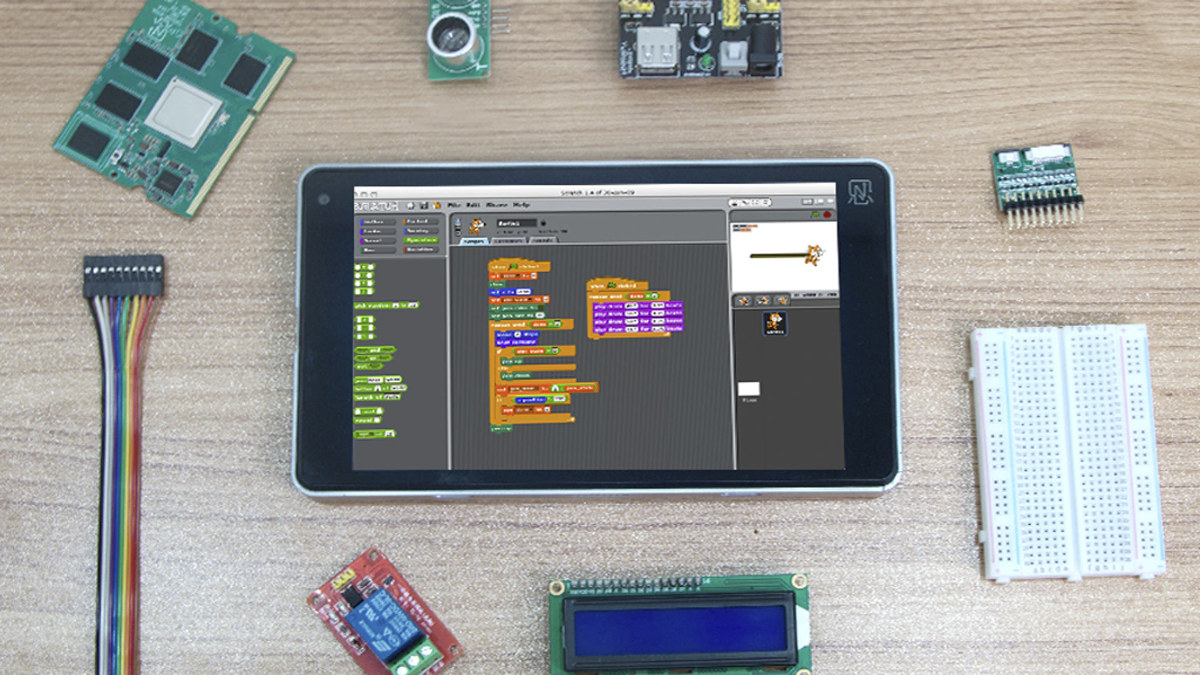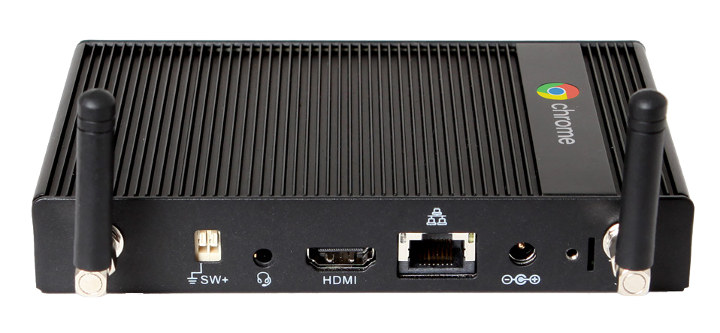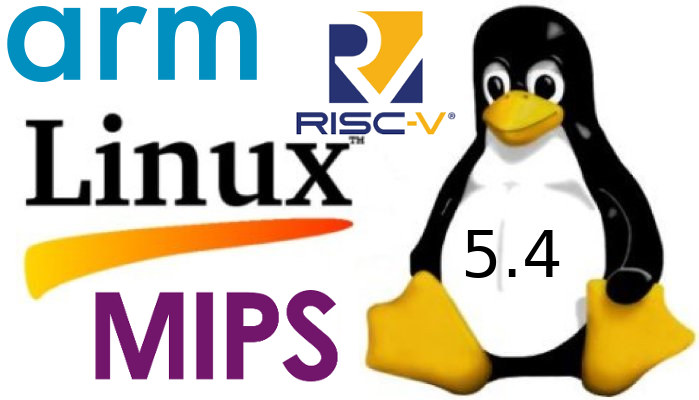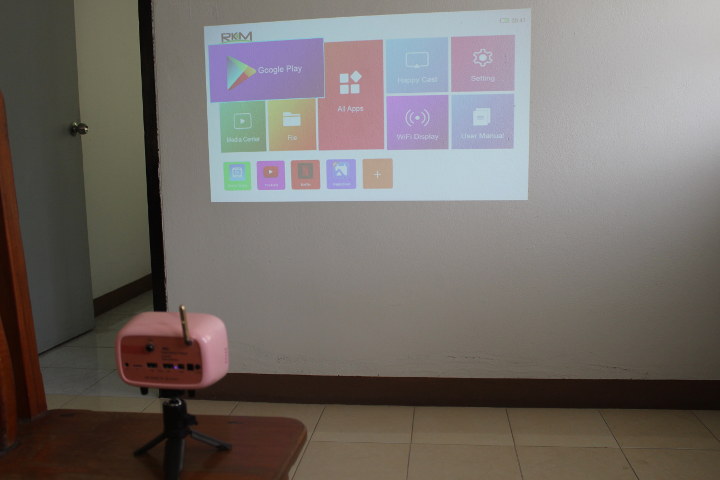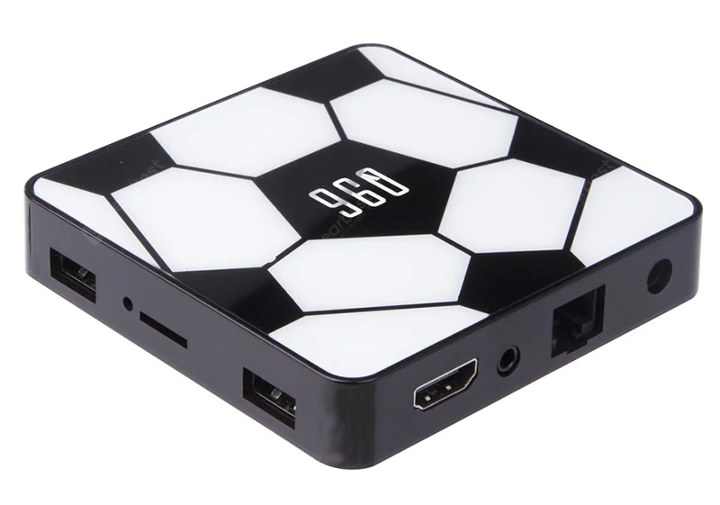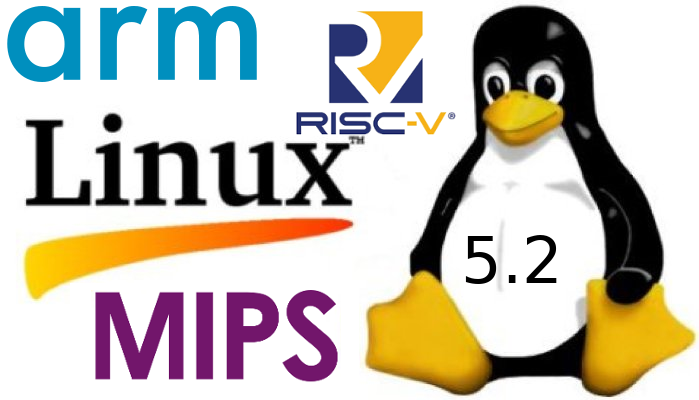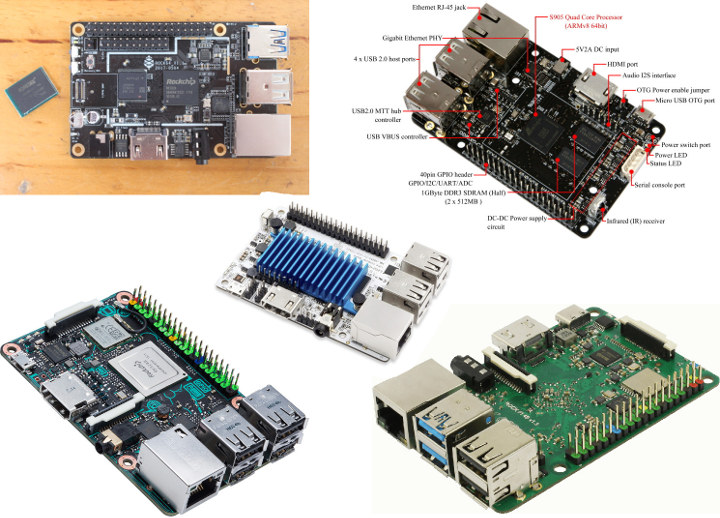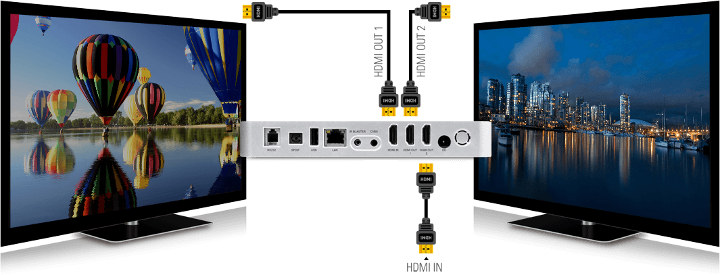Most tablets on the market either run Android or Windows, and while some have tried to launch Linux tablets, none of the products have really caught on, although the upcoming PINETAB might change that. Another option might be Ntablet 7″ tablet that runs either Android, Debian or WebOS Linux operating systems, but also offers some innovative features such as a replaceable Rockchip RK3288 CPU module, and an external GPIO board for makers. Ntablet hardware specifications: SoC – Rockchip RK3288 quad-core Cortex-A17 processor @ 1.8 GHz with Mali-T760 quad-core GPU System Memory – 2GB LPDDR3 Storage – 16GB eMMC flash, MicroSD card slot up to 32GB Display – 7″ touchscreen IPS display with 1920×1200 resolution Video Output – Micro HDMI port Audio – 3.5mm headphone jack Camera – 5MP front-facing camera (OV5648 sensor) Connectivity – 802.11b/g/n/ac WiFi 5 and Bluetooth 4.0 via Ampak AP6255 module USB – 1x USB 2.0 port, […]
AOPEN Chromebox Mini is Designed for Digital Signage and Kiosks
Most ChromeOS devices are designed for either the consumer or educational markets, but Google’s operating system can also be used for commercial applications such as digital signage. A cheap way to set up a ChromeOS based digital is to get a ChromeBit (around $100 used) and install one of the Digital Signage apps for the OS. But as I checked out Linux 5.4 changelog, I came across AOPEN Chromebox Mini (codename Fievel) powered by a Rockchip RK3288 processor and described as an “enterprise-ready” Chromebox for 24/7 operation as digital signage or kiosk. AOPEN Chromebox Mini specifications: SoC – Rockchip RK3288C quad-core Cortex-A17 processor @ up to 1.8GHz with Arm Mali-T764MP GPU clocked at up to 600 MHz System Memory – Dual-channel 4GB LPDDR3 Storage – 16GB eMMC 5.0 flash Video Output – HDMI up to 1080p60 Audio – 1x combo jack with Line out/Line in Connectivity – Gigabit Ethernet, WiFi […]
Linux 5.4 Release – Main Changes, Arm, MIPS & RISC-V Architectures
Linus Torvalds has just announced the release of Linux 5.4: Not a lot happened this last week, which is just how I like it. And as expected, most of the pull requests I got were for the 5.5 merge window, which I’ll obviously start working through tomorrow. What little there is here is mostly some networking updates (mix of network drivers and core networking), and some minor GPU driver updates. Other than that it’s a small collection of random other things all over. The appended shortlog is small enough that you might as well just scroll through it. Anyway, this obviously opens the merge window for 5.5. It’s not ideal timing with Thanksgiving week coming up, but it hopefully shouldn’t be too much of an issue. If I fall behind (not because I’m all that big of a fan of the indiscriminate and relentless turkey-killing holiday) it’s because we’ve got […]
Rikomagic R6 Review – Part 1: Android Mini Projector’s Unboxing and First Boot
Rikomagic R6 is a mini Android projector that looks like a vintage radio, or depending on your point of view a mini vintage television. We’ve already gone through the specifications last time around, but the smart projector is based on a quad-core Rockchip processor coupled with up to 2GB RAM and 16GB storage, while the 720p projector delivers up to 70 ANSI lumens. The company has now sent me a sample for review, so in this first part of the review, I’ll show what’s in the package, and what it looks like after boot, before going through more thorough testing in the second part of the review. Rikomagic R6 Unboxing The package reads “R6 MINI Projector” and “Smart Home Theater”. I received a pink model, but the company also offer other colors. The projector’s lens is protected by a black cover. The projector feels quite heavy and indeed it weights […]
RK3229 Powered Q96 Smart Android 9.0 TV Box Sells for $19.99 (Promo)
A few years ago, it was pretty easy to buy ultra-cheap under $20 TV boxes, but with the RAM and flash memory prices increase, companies were unable to provide such good deals. Prices have now come down to earth, so deals may pop-up from time to time, and one of those is for Rockchip RK3229 based Q96 Smart TV box running Android 9.0 with 1GB RAM and 8GB flash that currently goes for $19.99 on GearBest with coupon GBCNQ9601. [Update: GBCNQ962 coupon can be used for the 2GB version bringing down the price to $25.99] Q96 Smart specifications: SoC – Rockchip RK3229 quad core Arm Cortex-A7 processor up to 1.5GHz with Arm Mali-400 MP2 GPU System Memory – 1 or 2GB DDR3 Storage – 8GB or 16GB flash, microSD card slot Video & Audio Output – HDMI 2.0 up to 4K @ 60 Hz + AV port with composite and […]
Linux 5.2 Release – Main Changes, Arm, MIPS & RISC-V Architectures
Linus Torvalds announced the release of Linux 5.2 last Sunday: So I was somewhat pre-disposed towards making an rc8, simply because of my travels and being entirely off the internet for a few days last week, and with spotty internet for a few days before that [*]. But there really doesn’t seem to be any reason for another rc, since it’s been very quiet. Yes, I had a few pull requests since rc7, but they were all small, and I had many more that are for the upcoming merge window. Part of it may be due to the July 4th week, of course, but whatever – I’ll take the quiet week as a good sign. So despite a fairly late core revert, I don’t see any real reason for another week of rc, and so we have a v5.2 with the normal release timing. There’s no particular area that stands […]
Top 5 Raspberry Pi Alternatives in 2019
The Raspberry Pi boards are great little Arm Linux SBC’s with a low price and great community support. But the Broadcom processors used in the boards are also fairly old so they may not be suitable for some projects. If your application needs or would benefit from modern features such as memory over 1GB RAM, an actual Gigabit Ethernet port, USB 3.0 port(s), 4K video output, or H.265 hardware video decoding you’ll have to find Raspberry Pi alternatives. I’ll point out 5 alternative single board computers in this post from the point of view of existing Raspberry Pi users, who will want good software support and a board with the same or similar form factor as Raspberry Pi 3 Model B/B+ in order to reuse their add-on boards and/or enclosures. Price has to be competitive as well, so nothing above $80 will be mentioned. The boards are not listed in […]
Geniatech ATV1660K TV Box Supports Dual HDMI Output, HDMI Input
There are many applications that may benefit from dual display support from digital signage to healthcare to retail or entertainment either to provide access to two different output for the service provider and customer or simply to mirror content. Most Android TV boxes only come with one display output however, so in most cases, you’d have to switch to an Intel mini PC or add a USB-C display adapter if supported by the hardware. Geniatech ATV1660K TV box supports dual HDMI output out of the box, as well as HDMI input. The Android 5.1 TV box is powered by the time-tested Rockchip RK3288 processor and comes with 2GB RAM and 16GB storage by default. Geniatech ATV1660K specifications: SoC – Rockchip RK3288 quad-core Arm Cortex-A17 processor at up to 1.8GHz, with Mali-T764 GPU System Memory – 2GB DDR3 (1GB optional) Storage – 16GB eMMC flash (4GB-32GB optional), full-size SD card slot […]


